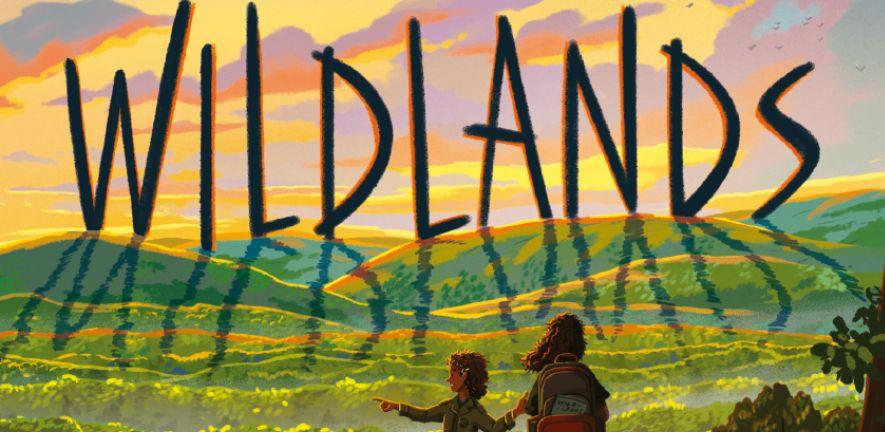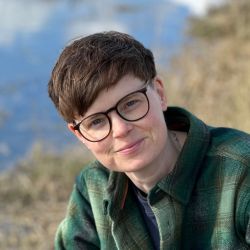
Submitted by Abigail Youngman on Thu, 20/03/2025 - 12:42
Out this month, Zoology pt II graduate (2005) Brogen Murphy’s first novel, Wildlands published by Penguin Random House, is a survival story aimed at readers aged 10 and older.
The year is 2050, no humans are allowed in the Wildlands – a vast area in Britain where wolves, lynx and bison roam free.
Thirteen-year-old Astrid and her little sister, Indie, find themselves accidentally stranded in this place of astonishing natural wonders and terrible dangers, they have only a rucksack, a phone without signal – and each other.
Author Brogen Murphy (pictured) explains how their debut novel was shaped by their undergraduate studies.
Murphy first encountered the concept of rewilding during their third-year critical review project, analysing a paper proposing a Pleistocene Rewilding Park in the North American Great Plains. The study suggested introducing African species as proxies for the long-extinct American cheetah and lion that once hunted pronghorn antelope.
"For much of my degree, I was learning about carefully coppicing woodland or mowing chalk grassland to protect a single rare butterfly,” Murphy recalls. “Then here was something (at the time, at least) radically new: restore missing species and let them shape the landscape, just as they had for millennia."
Murphy credits the department’s Professor Andrew Balmford in the book’s acknowledgements. “I still remember his lecture series on megafaunal extinction. He painted such a vivid picture of how biodiverse and abundant the planet once was—it shifted my whole perspective.”
But perhaps Professor Balmford’s biggest influence was an off-hand piece of careers advice. “A group of us cornered him at the end of the final lecture. I never forgot what he said: Conservation doesn't need Conservationists; it needs people with other skills that are passionate about conservation.”
Murphy has taken this advice to heart. Since graduating nearly two decades ago, they've worked in carbon offsetting, (very briefly) in climate activism, and built a business promoting clean technology start-ups.
“I hope what conservation really needs is children’s authors,” Murphy jokes, before adding more seriously, “But why not. Stories matter, and stories for children matter most of all. I want to shift kids’ perspective on what's possible for nature in this country. I want them to long for more."
Author photo: Alisa Murphy

